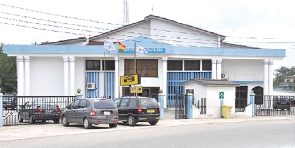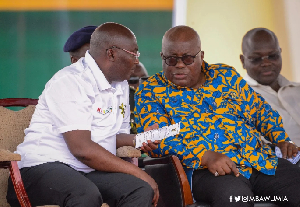The Lower Pra Rural Bank at Shama in the Western Region has recorded positive results in most indicators during its operations ending December 31, 2022.
The outlook in deposits, lending, investment, net worth, profitability, total assets, debt recovery and technology projected by the bank were, therefore, positive.
The Board Chairman, Mr Isaac Kwamina Van-Ess, said this at the 35th Annual General Meeting (AGM) of the Bank, which also saw the launch of its 40th anniversary to be held in August, this year.
The 2022 operational results suggested there was “light at the end of the tunnel” despite the aftermath of the COVID-19 pandemic and the Domestic Debt Exchange, he said.
“We have braced ourselves for the challenging task ahead and prepared to partner with the Government in the implementation of its policy programmes,” Mr Van-Ess said.
“We are also aware of the increasingly keen competition around us and have consequently and strategically repositioned ourselves to achieve a favourable foothold in the industry.”
He told shareholders that investment in the banking sector experienced challenging times as some institutions had monies locked up in government bonds, but assured that Lower Pra was saved from such ‘troubles and haircuts.’
“The bank is continuously pursuing its policy of prudent investment to maximise returns on shareholders’ funds. The total investment in near cash securities as of December 31, 2022, was GH¢67.6 million as against GH¢60.6 million in 2021, representing an increase of 17 percent.”
Despite the Bank of Ghana’s notice issued in 2020 directing all banks to desist from declaring or paying dividends to shareholders for the 2019/ 2020 financial year, due to the COVID-19 pandemic, Lower Pra had declared a dividend of GH¢0.25 for the 2022 financial year, Mr Van-Ess said.
However, he noted that the higher returns on shareholders’ funds had also contributed to the high demand for the bank shares and, therefore, invited existing shareholders to increase their shares to maintain the community ownership of the bank.
“There are some shareholders whose shares are too small to earn them reasonable dividends… We, therefore, appeal to those shareholders to purchase more shares to make more reasonable returns.”
He expressed grave concern over the failure of some customers to service their loans fully or on schedule, and said although there had been a reduction of 2.38 per cent, “the figure could be brought down.”
The challenge of delayed and non-payments of loans by customers and rising operational expenses, notwithstanding, Lower Pra generally reported positive indicators with deposits improving from GH¢151.14 million in 2021 to GH¢183.90 million in 2022, an increase of 22 per cent.
On the economic environment, Mr Van-Ess said the banking sector reforms largely succeeded in enhancing financial development and expansion in size and diversity within the industry.
One critical development was modern technology and digitalisation, which had been the driving force behind banking, he said, and that the sector was being repositioned for the task ahead.
“Technology is a key driver for improvement in income and standard of living…the goal is to enhance technological advancement, as the bank takes advantage of the changes to sustain and ensure growth under the bank’s sustainability growth policy.”
The Board Chairman was grateful to God for driving the bank throughout the years to achieve success in the year under review.
Mr Alexander Kwesi Awuah, the Managing Director of the ARB Apex Bank, called on shareholders to increase their shares to shore up the assets of the Bank.
He urged stakeholders to maintain good customer care in these challenging times to ensure the bank continued to stay afloat.
Business News of Saturday, 3 June 2023
Source: GNA

















